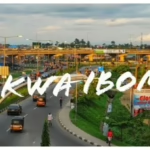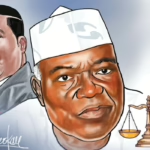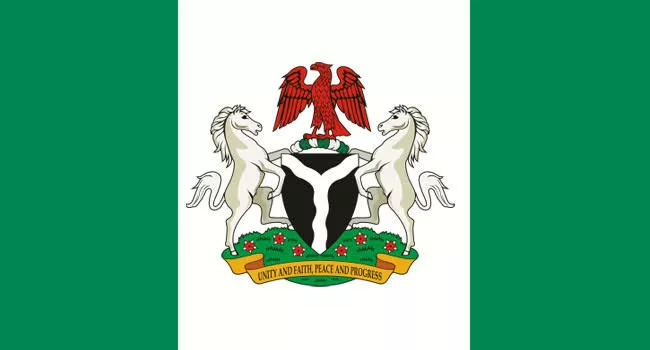Amid a growing global deficit of educators, Nigeria finds itself at the heart of a severe educational crisis that jeopardizes the achievement of Sustainable Development Goal 4 (SDG 4), which aims to ensure inclusive and quality education for all by 2030.
The United Nations Educational, Scientific and Cultural Organization (UNESCO) has issued a stark warning: by 2030, the world will need an additional 44 million teachers across primary and secondary levels to fulfill universal education commitments. Alarmingly, teacher attrition rates have nearly doubled, rising from 4.62% in 2015 to 9.06% in 2022.
In Nigeria, this shortage is reflected in the staggering number of children out of school-projected to reach 18.3 million in 2024-accounting for one-fifth of the global out-of-school youth population, alongside a persistent lack of qualified teaching personnel.
The urgency for a comprehensive recruitment campaign, improved teacher welfare, and transformative policy reforms is intensifying. Without decisive action, Nigeria risks consigning future generations to illiteracy and stunted development.
Globally, the scarcity of teachers is a concrete obstacle to educational progress. UNESCO’s Global Report on Teachers, published in April 2025, highlights that even affluent regions such as Europe and North America struggle with recruitment challenges, resulting in overcrowded classrooms and compromised learning quality.
In less developed countries, the problem is even more acute, fueled by economic instability, insufficient teacher training, and the low social status of the profession. The COVID-19 pandemic exacerbated these issues, driving many educators to leave the field due to burnout and inadequate compensation, thereby placing 84 million children at risk of missing out on schooling.
This situation threatens the realization of SDG 4, as countries grapple with providing equitable education, perpetuating cycles of poverty and social inequality. Nigeria’s predicament mirrors these global challenges but is intensified by ongoing conflict, widespread poverty, and systemic neglect.
The statistics within Nigeria paint a grim picture. Approximately 20 million children remain out of school, influenced by insecurity in the Northeast, financial hardships in the South, and cultural barriers nationwide. The Northeast alone has two million children displaced by conflict, with frequent attacks damaging educational infrastructure and worsening teacher shortages.
At the primary education level, only about 915,913 teachers are available for 31.7 million students, creating unfavorable student-teacher ratios that impede effective instruction. Public primary schools face a deficit exceeding 165,000 teachers, especially in rural communities, deepening educational inequalities. Moreover, the government’s education budget, fluctuating between 5% and 9% of national expenditure, falls far short of UNESCO’s recommended 15-20%, limiting resources for hiring and infrastructure development.
This shortage extends beyond numbers, reflecting deeper governance failures. Teachers often endure low wages, delayed salaries, and poor working environments, leading to high attrition rates and brain drain. However, some states like Anambra and Enugu have initiated promising measures-such as recruiting 5,000 merit-based teachers and allocating 33% of their 2025 budgets to education-offering rare examples of progress amid widespread neglect.
The narrative of gradual improvement collapses when confronted with realities like the Almajiri system, where millions of street children lack access to formal education, or conflict-affected zones where schools remain closed. Without addressing these challenges, Nigeria faces a looming “literacy crisis” that threatens economic growth and social cohesion.
Addressing this crisis requires tailored strategies. First, a nationwide teacher recruitment initiative must be launched, focusing on hiring qualified professionals through transparent, merit-based selection. The Federal Ministry of Education, in partnership with state governments, should aim to fill the 165,000-plus primary school vacancies, drawing inspiration from Rwanda’s post-conflict teacher recruitment surge, which elevated enrollment rates to 98%. Incentives such as rural hardship allowances and housing support could attract educators to underserved regions.
Second, improving teacher welfare is critical to reducing attrition. Competitive salaries that reflect living costs, ongoing professional development, and mental health support are essential. UNESCO’s emphasis on resilient education systems underscores the need for Nigeria to invest in training teachers with digital competencies and inclusive teaching methods, countering the trend of educators leaving for freelance or overseas opportunities. The Teachers Registration Council of Nigeria’s concerns about unqualified personnel further highlight the necessity for continuous certification and skills upgrading.
Third, systemic policy reforms must be enacted. Education funding should be increased to at least 15% of the national budget, fulfilling commitments made in 2021. Programs to reintegrate out-of-school children through alternative education and community-based initiatives-similar to the World Bank’s $700 million loan supporting adolescent girls’ empowerment-should be expanded. Nigeria could also learn from Finland’s teacher autonomy model or Singapore’s meritocratic systems to promote innovation and equity in education.
As a publication dedicated to promoting effective governance, we call on President Bola Tinubu’s administration, state governors, and the National Assembly to prioritize this urgent crisis. The global teacher shortage is a clarion call-Nigeria cannot afford to fall behind. Investing in educators is investing in the nation’s future, ensuring that SDG 4 becomes a tangible achievement rather than empty rhetoric. The moment for action is now; failure to act risks condemning a generation to ignorance and inequality.

















